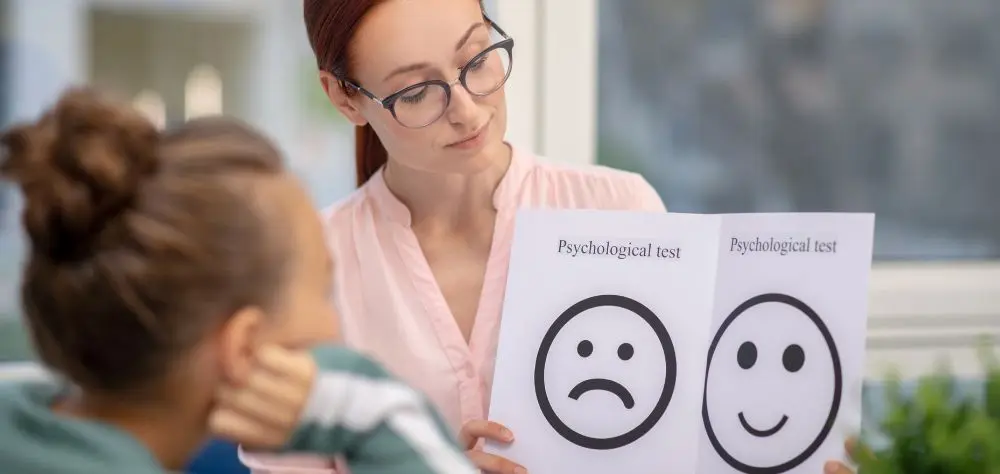PsyD with Child Psychology Scope: Child and Adolescent Psychology

A PsyD in child psychology prepares you to work directly with children, adolescents, and families during some of the most formative—and sometimes challenging—periods of life. For those drawn to help younger populations navigate emotional, behavioral, or developmental concerns, this pathway offers deep clinical training and the ability to make a lasting impact.
If you’re called to support youth mental health and want a focused clinical route, exploring the scope of a PsyD in child psychology is a powerful next step.
PsyD with Child Psychology Scope: Child and Adolescent Psychology
What Is Child Psychology Practice with a PsyD?
Practicing Child psychology with a PsyD centers around the clinical understanding and treatment of young individuals—from infancy, childhood through adolescence to early adulthood. It offers professionals a gratifying career of making a difference in the life of children, adolescents, and their family as they navigate developmental, behavioral, emotional, and psychological challenges.
Earning a PsyD with this scope means learning how to apply psychological theory in real-world settings where empathy, cultural awareness, and clinical precision are essential. If you are drawn to helping kids thrive and want the depth of training to do it effectively, this is where that journey begins.
Licensed Psychologist Scope for Child and Adolescent Populations
With a PsyD, you are positioned to pursue licensure as a clinical psychologist and work with children, teens, and families across a wide range of settings. This includes:
- Outpatient clinics
- Hospitals and pediatric care centers
- School-based mental health programs
- Private practice
- Community mental health organizations
- Behavioral health teams within medical systems
This scope allows for psychological testing, diagnosis, treatment planning, and psychotherapy, all tailored to the developmental stages and unique needs of children and adolescents.
Comprehensive Clinical Training Applicable Across Age Groups
While the focus is on youth, the clinical training you receive is broad enough to serve clients across the lifespan. This equips you with adaptable skills that extend your reach and increase your impact. You’ll learn to assess and intervene with insight, whether your client is a young child struggling with anxiety, a teenager facing identity challenges, or an adult carrying early-life trauma. That versatility matters in today’s evolving mental health landscape.
PsyD Foundation for Child Psychology Practice
A PsyD with child psychology scope emphasizes how foundational psychological principles apply specifically to young minds. You’ll explore cognitive development, attachment theory, trauma-informed care, and family dynamics—all through the lens of clinical practice. These concepts are woven into diagnostic work, therapy sessions, and treatment plans that make a real difference in children’s lives. It’s about learning how to communicate with young clients, build trust, and guide families with confidence.
SCUHS’s Broad-Based Training for Diverse Clinical Populations
At Southern California University of Health Sciences (SCUHS), our Doctor of Psychology (PsyD) in Psychodynamic Psychology program offers an accelerated 3.3-year hybrid format that blends academic study with immersive, hands-on training. You’ll study psychodynamic theory, psychological assessment, and holistic health approaches in a program designed to prepare you for real-world clinical work. Our curriculum is led by Dr. Jens Schmidt, an expert in psychodynamic therapy and child psychology, who brings depth and experience to your training.
From diagnostic skills to psychotherapy techniques, you’ll gain focused, practical experience with children, adolescents, and families, while also building the tools to support clients of all ages. It’s a training model built for flexibility, depth, and career readiness.
Child-Relevant Clinical Competencies
Working with children calls for a different lens, one grounded in how kids grow, think, relate, and respond to the world around them. At SCUHS, we make sure you gain that lens and develop the practical skills to apply it. From early assessment to building lasting therapeutic rapport, you’ll be trained to navigate the nuances that come with working with younger clients and their families.
You’ll build expertise in:
- Developmental psychology and key milestones in child and adolescent growth
- Diagnostic frameworks designed for pediatric mental health
- Evidence-based interventions tailored to children and teens
- Culturally responsive care that reflects the lived experience of families
Every child is different. Your training at SCUHS helps you meet them where they are with skill, empathy, and clarity.
Curious if a PsyD is the right fit for you? Schedule a virtual information session or reach out to us at admissions@scuhs.edu
SCUHS Training Applicable to Child Psychology
Specializing in child and adolescent psychology calls for focused training, clinical versatility, and a deep understanding of development, family systems, and therapeutic communication. At SCUHS, our PsyD program is designed to help you build exactly that. With expert faculty, hands-on experience, and a curriculum grounded in both science and compassion, we prepare you to support children and adolescents in meaningful, lasting ways.
Psychodynamic Approaches with Children
Our program is led by Dr. Jens Schmidt, who brings a strong foundation in psychodynamic therapy and has shaped the curriculum with child-specific applications in mind. Through this training, you’ll learn how to work with children and families using therapeutic techniques grounded in early development, attachment, and relational dynamics.
Here’s what this training includes:
- Psychodynamic theory and technique adapted to the developmental and psychological need of children and their families
- Attachment theory and how early relationships influence long-term mental health
- Neuroscientific perspective to understand emotional regulation
- Trauma-informed care to offer early intervention to fight lasting consequences
- Play therapy and other expressive modalities suited for younger clients
- Family systems work focused on strengthening the parent-child relationship
These tools prepare you to enter clinical settings with clarity, confidence, and a child-centered lens.
Trauma-Informed Care for Children
Understanding trauma, especially childhood trauma, is essential when working with populations of all ages. Many children face complex life circumstances, such as abuse, neglect, displacement, loss, bullying, or other systemic challenges that require thoughtful, informed clinical care. At SCUHS, you will learn about trauma-informed interventions rooted in psychodynamic understanding and tailored to children’s unique needs.
You will explore how trauma impacts early development and attachment, and what interventions will help young clients to restore a sense of safety, resilience, and emotional stability. Our training highlights community-based work and mental health care practices that reflect the lived experiences of BIPOC and underserved youth. This perspective helps you engage more fully with the realities children bring into the therapy space.
Psychotherapy and Evidence-Based Approaches for Adolescents
Adolescence is marked by its own developmental complexities, intense emotional experiences, identity crisis, and the challenge to transition from childhood to adulthood. Our curriculum incorporates treatment approaches tailored to effectively work with and support teens and their families.
You will learn how to introduce emotional regulation techniques into the treatment of adolescents and support and guide them through developmental crises and challenges. The training emphasizes how to adapt these techniques and integrate them with other therapeutic modalities and techniques to clients from diverse populations. This gives you the flexibility to meet teens where they are and help them grow into integrated thriving adults.
Child Psychology Practice Areas for PsyD Graduates
Graduating with a PsyD opens the door to a wide range of practice settings and professional roles. Whether you’re drawn to one-on-one therapy, school-based collaboration, or working with families as a unit, your training prepares you to step into these roles with competence and care.
Individual Child and Adolescent Therapy
As a PsyD-trained clinician, one of your most impactful roles is working directly with children and adolescents. You’ll have the tools to guide them through emotional and behavioral challenges, while helping them build skills for long-term wellness.
Common responsibilities in this area include:
- Conducting psychological assessments and develop sound diagnostic evaluations
- Providing developmentally appropriate therapy for children and teens
- Responding to urgent mental health needs through crisis and timely intervention
- Building therapeutic relationships that support lasting psychological change
Competent psychotherapy can have a life changing impact on a young person’s life, and your role can make a profound difference in how they see themselves and their future.
Family and Parent-Child Work
Families shape a child’s world, and as a psychologist, you will learn how to also work closely with them to support stronger relationships, improve communication, and resolve conflict. This work draws heavily on your ability to engage both children and adults and to understand how family systems and relational dynamics play out over time.
You may engage in family therapy, offer parent consultations, and use attachment-focused models to support deeper connection and healing. Your training will allow you to identify when additional support services are needed and guide families toward the right resources in their community.
School and Educational Settings
Schools are often the first place where mental health needs are recognized, and psychologists trained in child development play a vital role here. With your PsyD, you will be equipped to consult on behavioral, cognitive, academic, emotional, and psychosocial challenges, support students with learning differences, and collaborate with teachers, administrators, and counselors to create healthier school environments.
You will conduct evaluations, assist in developing intervention plans, and help bridge the gap between academic, emotional, and social support. Whether you are working in a K-12 setting or consulting externally, your expertise helps children succeed in both learning and life.
Clinical Settings for Child-Focused PsyD Practice
With a PsyD specializing in child psychology, you are equipped to practice in a wide range of clinical settings, each offering unique opportunities to make a meaningful impact. Whether you’re drawn to the autonomy of private practice, the collaboration of medical environments, or the community reach of public services, your training gives you the clinical flexibility to serve children and families where support is needed most. The goal is always the same: to deliver thoughtful, skilled care grounded in developmentally appropriate, culturally responsive practices.
1. Private Practice with Child Focus
Many PsyD graduates choose to open or join a private practice focused on serving children, adolescents, and their families. This setting offers flexibility in how you shape your services and build long-term therapeutic relationships.
In private practice, your role often includes:
- Individual therapy tailored to children and adolescents
- Group therapy for guided peer support
- Family counseling and family therapy
- Parent and caregiver consultation and workshops
- Psychological assessments for learning, behavioral, and emotional concerns
- Treatment planning that reflects the child’s environment, needs, and goals
These settings allow for meaningful and tailored engagement according to clients’ needs and the freedom to develop specialties that align with your passion.
2. Healthcare and Medical Settings
Pediatric psychology is a growing presence in hospitals, outpatient clinics, and integrated healthcare environments. In these settings, you’ll work closely with medical teams to support children navigating chronic illness, injury, or medical trauma.
You may provide bedside support in pediatric wards, help children adjust to serious diagnoses, or assist families dealing with high-stress medical decisions. This kind of work requires clinical precision, strong communication, and a sensitivity to both the emotional and physical aspects of care.
3. Community Mental Health and Social Services
If your passion lies in public service or advocacy, community mental health settings offer the chance to serve children in high-need populations. You might work in nonprofits, school-based programs, or child protective services, helping children who are often facing layered challenges, including poverty, trauma, or systemic inequity.
This work includes prevention, early intervention, crisis response, and long-term therapy. You will often collaborate with schools, case workers, and social service agencies to create holistic care plans. It’s a fast-paced, meaningful environment where your impact can ripple through entire communities.
Post-Graduate Child Psychology Development
Earning your PsyD is a major step, but growth does not stop at graduation. For child-focused psychologists, post-graduate development plays a key role in expanding expertise, building confidence, and staying current with evolving clinical practices. Whether you are sharpening assessment skills, deepening your therapeutic approach, or preparing for certification, ongoing education and mentorship help you stay grounded and effective in your work with children, adolescents, and families.
Continuing Education for Child Specialization
After earning your PsyD, you will have access to a wide range of continuing education opportunities that support deeper specialization in child psychology. These programs and workshops allow you to build on your existing training while refining techniques and exploring new approaches.
Areas commonly pursued in continuing education include:
- Advanced play therapy and expressive modalities for younger clients
- Pediatric psychology training tailored to hospital and medical environments
- Specialized interventions for trauma, anxiety, or neurodevelopmental disorders
- Focused training in child assessment tools and protocols
Whether you are pursuing a niche interest or strengthening a generalist foundation, these experiences add depth to your practice and increase your impact.
Supervision and Mentorship in Child Work
Supervised clinical experience doesn’t end with your degree, it continues to be a key part of your growth as a psychologist. Working under seasoned child psychology professionals provides space for reflection, refinement, and real-time feedback.
Supervision in child and family cases helps you navigate complex dynamics, improve your clinical judgment, and find your voice as a practitioner. In addition, seeking consultation with experienced clinicians allows you to approach difficult cases with greater clarity.
Certification and Advanced Training
Professional certifications and advanced training programs are valuable tools for expanding your credentials and credibility. Many PsyD graduates pursue board certification in clinical psychology with a child or adolescent emphasis. Others attend post-doctoral training institutes focused on areas like attachment, trauma, or pediatric care.
Membership in professional organizations, such as the APA Division 53 (Society of Clinical Child and Adolescent Psychology), also provides access to exclusive resources, research, and conferences. Staying current with continuing education requirements helps you maintain licensure and ensures your skills remain sharp as the field grows and shifts.
SCUHS Unique Advantages for Child Psychology Practice
Choosing the right PsyD program means finding one that prepares you for meaningful, skilled, and sustainable practice—especially if your goal is to work with children and families. At SCUHS, our program is designed to give you the kind of clinical foundation, hands-on training, and multicultural perspective that supports strong, confident work in psychology. From the way we structure our timeline to the way we center community care, everything is built to help you start strong and keep growing.
Broad Clinical Foundation
Our PsyD program offers a wide clinical base that supports both generalist practice and child specialization. From day one, you’ll be learning approaches that apply across all developmental stages, with the flexibility to shape your training toward the populations you care most about.
Key strengths of our clinical foundation include:
- In-depth psychological assessment training
- Exposure to a variety of therapeutic modalities that apply across age groups
- Strong multicultural focus and cultural humility training
- Pathways to develop a child-centered practice
This combination gives you both a wide lens and focused skills—ideal for practitioners who want to work with children in a variety of roles and settings.
Accelerated Timeline to Practice
Our 3.3-year hybrid program is designed for motivated students ready to step into the field with momentum. Compared to traditional programs that often take 5 to 7 years, SCUHS allows you to move efficiently from advanced training to doctoral completion.
You will benefit from:
- A faster timeline to becoming a licensed psychologist
- Reduced total tuition costs and fewer years out of the workforce
- More time in your career to make a long-term impact
It’s a focused, supportive structure that helps you reach the next level of your professional development—combining efficiency with academic and clinical depth.
Community-Driven and Multicultural Approach
Our commitment to whole-person care includes a strong focus on community mental health, multicultural competence, and social justice. These values are woven throughout your training and play a direct role in how we prepare you to work with children and families.
You will gain practical experience with underserved communities, learn how to adapt interventions for diverse cultural contexts, and explore how race, identity, and environment influence child development. This community-driven lens is a vital part of becoming a thoughtful, responsive clinician, one who’s ready to meet children and families where they are, and advocate for what they need.
Ready to start your path in psychology? Apply today, or join one of our virtual information sessions to learn more. Have questions? Reach out anytime at admissions@scuhs.edu—we’re here to help.
Licensing and Credentialing for Child Psychology
Earning a PsyD represents the highest level of academic and clinical education in the field of psychology. At SCUHS, our program prepares professionals to expand their expertise in working with children, adolescents, and families through an integrative, evidence-based approach.
Graduates gain advanced clinical knowledge, applied assessment skills, and leadership insight that support a wide range of professional roles. Many continue their work as therapists, supervisors, administrators, educators, or advocates—applying their doctoral training to elevate the quality of care and shape the systems that support child and family mental health.
Licensed Psychologist Credentials
Graduates of the SCUHS PsyD program are eligible to apply for licensure as Clinical Psychologists. This license grants the authority to independently diagnose, assess, and treat mental health concerns, including those affecting children and teens. With this credential, you’re also qualified to supervise pre-licensed clinicians and contribute to the next generation of psychologists.
Advancing Your Professional Standing
As a licensed psychologist, you’ll be able to provide independent therapy and assessment services to children and families. You’ll have the training to develop and lead treatment plans across a variety of clinical settings. This credential also allows you to supervise interns and early-career professionals, and to offer consultation services in schools, medical centers, and community programs.
For those who choose to pursue additional professional credentials, the PsyD provides a strong academic foundation that supports future specialization and recognition in the field.
Examples of ongoing professional growth include:
- Board certification through the American Board of Professional Psychology (ABPP)
- Membership in professional organizations such as APA Division 53 (Society of Clinical Child and Adolescent Psychology) or NASP (National Association of School Psychologists)
- Continuing education in evidence-based interventions for children and families
- Peer consultation, research collaboration, and professional supervision activities
Ready to develop your child psychology practice with SCUHS training? Our team is here to support your next step with personalized virtual consultations, detailed program insights, and a clear look at the clinical training you’ll receive. You’ll also learn how our alumni are making an impact in child-focused settings and explore financial aid and scholarship options designed to make your path accessible.
Ready to Develop Child Psychology Practice with SCUHS Training?
If you’re exploring a career in child psychology, we’re here to help you take the next step with clarity and confidence. Schedule a virtual consultation to talk through your goals, learn more about our clinical training, and hear how our alumni are making an impact in child-focused settings. We’ll walk you through the program, discuss financial aid options, and help you understand how SCUHS can support your path from classroom to clinical practice.
Start your journey today—apply now or reach out at admissions@scuhs.edu to talk with us one-on-one.
Frequently Asked Questions
What can I do with a PsyD in child psychology?
A PsyD in child psychology prepares you to work in clinical, school, medical, and community settings. You’ll be qualified to assess, diagnose, and treat children and adolescents, provide therapy, consult with families, and collaborate with professionals across systems.
How long does it take to complete the SCUHS PsyD program?
Our Doctor of Psychology (PsyD) in Psychodynamic Psychology program is designed for efficiency, with an accelerated 3.3-year hybrid format. This timeline allows you to begin clinical practice and pursue licensure sooner than many traditional programs, while still receiving comprehensive training across all key areas.
What financial aid or scholarships are available at SCUHS?
SCUHS offers a variety of financial aid options, including federal loans, institutional scholarships, and need-based support. Our admissions team can guide you through available resources and help you build a financial plan that supports your goals.
What clinical settings can I work in with a PsyD focused on child psychology?
You can work in private practice, schools, pediatric hospitals, community clinics, and integrated behavioral health teams. Many child psychologists also provide services through social services or early intervention programs. The PsyD equips you with skills to work across these settings, offering therapy, assessment, consultation, and crisis intervention.
Related Posts




